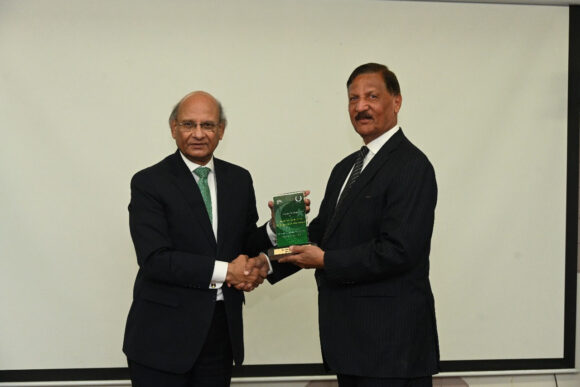ISMABAD UNS : Dr Ashfaque Hassan Khan, Director General NIPS, said that the present National Finance Commission modus operandi and its formula is highly politicised, and in need of being revisited in the larger national interest.
Speaking at IPRI’s forum titled, “Distinguished Lecture Series”, he said that Population was never taken into consideration anywhere in the world as criterion for distribution of revenue resources. He said this where the country has faced immense problems on the basis of discrimination and under-development among the provinces as there is huge disparity in population among the four provinces of Pakistan.
However, he said that after 1971 multiple criteria were used for the distribution of resources amongst the provinces.
Dr Ashfaque said that over 90 percent of taxes are collected at the Federal level while the remaining 10 percent are collected at the provincial level. Therefore, provinces rely-heavily on federal resources (over 80%) for meeting their expenditure requirements.
He said Pakistan has become an ungovernable country with the current units, and there is a need for transforming and treating divisions as provinces so that equitable distribution of resources could take place. “With provinces bigger and more populous than entire countries, how do we govern ourselves, if not without devolution?, he wondered.
He said he is working on a new formula for NFC and hoped that federating units will accept them in larger national interests. The last NFC was set up in 2009, and since then no headway owing to politicization has been made.
He said that the present day formula is infected with vertical and horizontal imbalances. He also pointed out that the First Award in 1951 was not based on population, rather on GNP performance and tax collection.
He pointed out that the seventh award pinnacles were population 82%, backwardness 10%, revenue collection 5%, and inverse population density 2.7%.
The provincial share in the federal divisible pool at the moment is: Punjab 51.7%; Sindh 24.5%; Khyber-Pakhtunkhwa 14.6% and Balochistan 9.09 under Seventh Award of 2009. He also said that it is quite unfortunate that despite a lapse of 14 years, no new commission has been set up, and even the census is delayed with a gap of 17 years, forcing all financial distribution formulas to be based on projections.
He called for depoliticizing the NFC Award, and constituting its members from all the four provinces on an apolitical basis. He said that to balance the spectrum the government must provide priorities and Terms of Reference (TORs).
Dr Khan proposed a new structure of resource distribution among the provinces as follows: Income gap 30%; Population 15%; Area 7.5%; Tax effort 5%; Human Development Index 10%; Demographic performance 17.5%; and Forest cover 5 percent.




